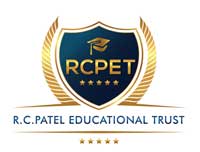Student Centric Methods
- College consider students as their important stakeholder. The entire academic process of planning, delivery of curriculum and assessment is designed to be student centric. Various efforts are made to make learning more students centric by focusing on specific learning outcomes for all courses and making it more participatory and interactive.
- The college facilitates all possible efforts for development of students through various forums like, career counseling cell, placement cell, science association and many other different clubs formed by respective departments.
- The student centric teaching is promoted by ensuring classroom environment to be learner-friendly.
- To enhance practical utility of the various courses, especially under science and commerce faculties, students are encouraged and guided to undertake projects to gain experience.
- Emphasis is given on proper academic preparation and syllabus completion.
- Separate lectures are arranged for soft skills and technical skill Development. Entire campus is having Wi-Fi facility to make available e-resources.
- Many classrooms are equipped with LCD projection systems, screens and green boards. Lecture notes are distributed/discussed after the completion of each unit.
- The classroom environment is kept conducive to make learners feel free share their ideas and form a healthy discussion.
- Advance information is given about topics to be taught in the next class so that the students can come prepared for active discussion with teachers.
- By allotting first 5-7 minutes of the lecture to revise the contents covered in the last lecture by asking some questions to check the understanding of the students and to develop a link for the topic of current lecture.
- Any doubts raised by learners are clarified by re-explaining the topic at a level where student can grasp the topic more easily.
- Critical thinking of learners is developed by asking them questions related to topic during the lecture.
- Faculty performance is closely monitored through student feedback. Faculty is encouraged to develop new experiments beyond syllabus.
- Guest lectures by eminent experts from industry and academia are organized.
- Library facilities help students in self-learning process.
- Lectures, group discussions, seminars, field visits, lab facilities, induction programs, short-term project are used by various departments to enhance skills.
- In addition to College library, the departmental libraries of select books have been established for quick and convenient reference materials.
